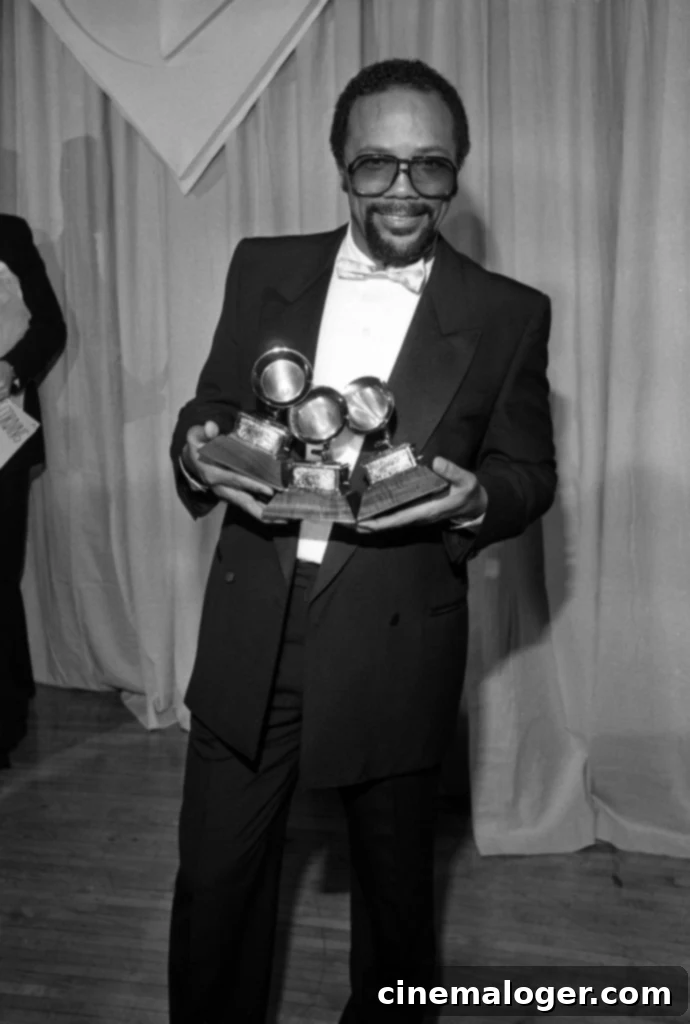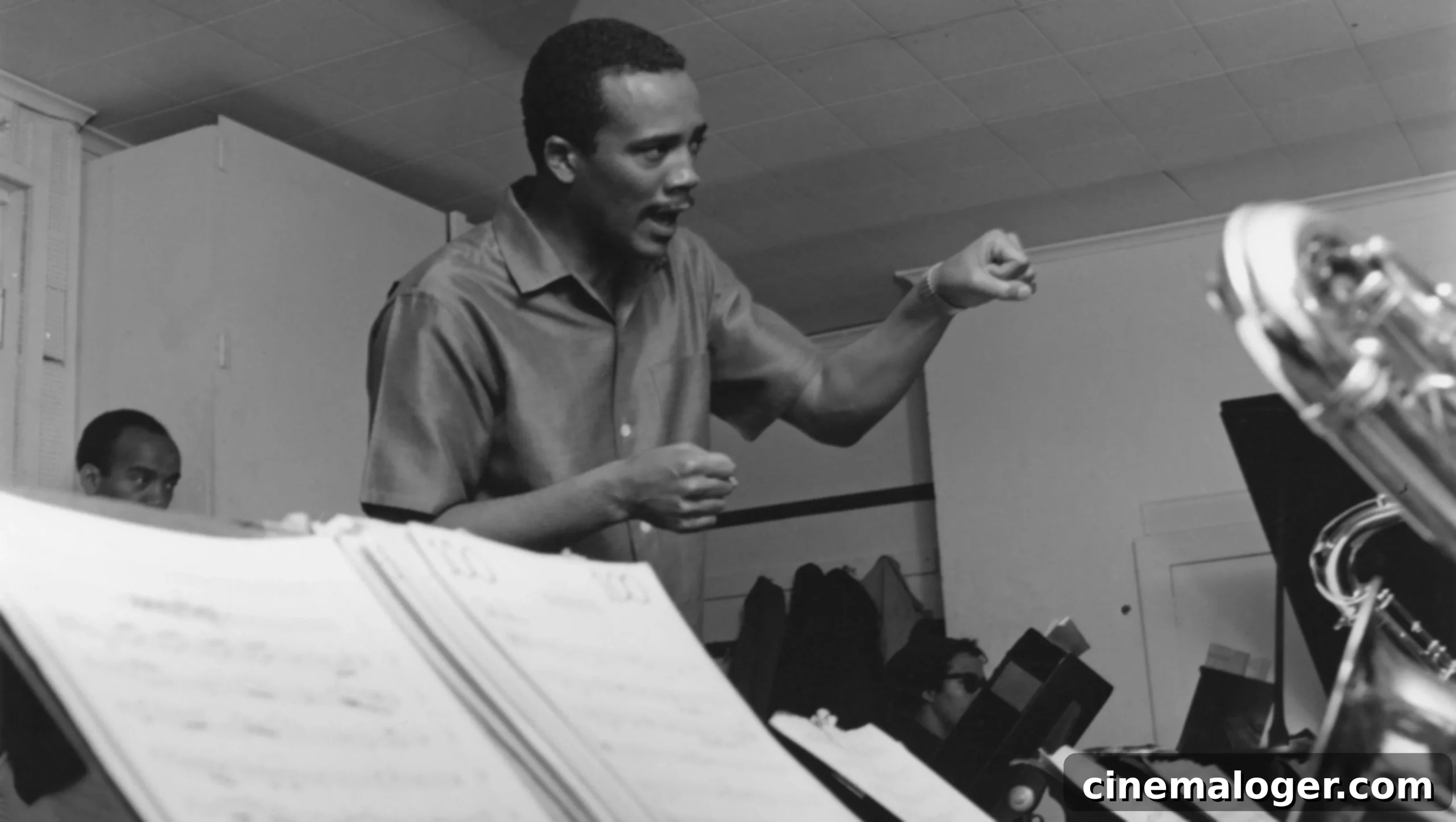Quincy Jones’ Enduring Legacy: A Deep Dive into His $500 Million Net Worth, Illustrious Career, and Family Life
The world bid farewell to a true titan of music and culture as Quincy Jones passed away on November 3 at the age of 91. A multifaceted maestro, Jones left an indelible mark as a producer, arranger, composer, bandleader, and humanitarian. His career, spanning an incredible six decades, was characterized by groundbreaking innovations, unparalleled collaborations, and an unwavering commitment to artistic excellence. This article explores the remarkable life and financial standing of this legendary figure, delving into his vast net worth, his monumental contributions to entertainment, and the vibrant tapestry of his personal life, including his marriages and his beloved children.
Quincy Jones, who died peacefully at his home, had built a colossal legacy that continues to resonate across generations. As a staggering 28-time Grammy Award winner—the most by any producer and second only to Georg Solti overall—his influence touched nearly every corner of the music industry. He famously collaborated with some of the biggest names in history, including the King of Pop, Michael Jackson, the iconic crooner Frank Sinatra, the powerhouse vocalist Celine Dion, and jazz pioneer Count Basie, among countless others.
Born in Chicago, Illinois, in 1933, Jones’s musical journey began at an early age. He taught himself trumpet and began performing in local jazz clubs as a teenager. His prodigious talent quickly caught the attention of legends like Lionel Hampton, leading him to tour as a trumpeter and arranger. These formative years laid the groundwork for a career that would consistently push boundaries and redefine musical genres. From his early work in jazz with artists like Dizzy Gillespie and Sarah Vaughan to his pivotal role in shaping pop, R&B, and hip-hop, Jones demonstrated an extraordinary versatility and a keen ear for what makes a hit record.
The Architect of Sound: Quincy Jones’ Illustrious Career
Over his expansive career, Jones served as the sonic architect behind some of the most iconic albums of all time. Most notably, he produced Michael Jackson’s landmark albums—Off the Wall (1979), Thriller (1982), and Bad (1987). These three albums not only broke numerous sales records but also played a pivotal role in cementing Michael Jackson’s status as the most successful and influential artist in the genre, transforming him into a global phenomenon. Jones’s meticulous production, innovative arrangements, and collaborative spirit were crucial in crafting Jackson’s signature sound, blending pop, R&B, funk, and rock into a universally appealing masterpiece.
Beyond his revolutionary work with Michael Jackson, Jones’s production credits are a who’s who of music royalty. He arranged and conducted for Frank Sinatra, notably on albums like It Might as Well Be Swing and L.A. Is My Lady, helping to infuse new life into Sinatra’s classic sound. His work with jazz greats like Dinah Washington, Ray Charles, and Sarah Vaughan further showcased his foundational understanding of jazz and his ability to elevate vocal performances. His early success as a bandleader and composer for various big bands in the 1950s and 60s established him as a formidable force in jazz, a genre he never truly left, even as he conquered pop.
In addition to his groundbreaking music production, Quincy Jones also left an indelible mark on the silver screen. He scored numerous films, bringing his distinctive musical flair to cinematic narratives. His most celebrated film scores include the iconic The Italian Job (1969), whose theme song “On Days Like These” remains a classic, and Steven Spielberg’s critically acclaimed drama The Color Purple (1985). For the latter, Jones not only composed the score but also served as a producer, earning him Academy Award nominations for Best Original Song and Best Original Score, and a Best Picture nomination. His filmography also includes scores for films such as In the Heat of the Night, Cactus Flower, and Deadly Affair, demonstrating his wide-ranging talent across various film genres.
Jones’s entrepreneurial spirit extended beyond music and film. He was a pioneering figure in media, launching Vibe magazine, a prominent publication focused on urban music and culture. He also founded Qwest Records, a label that released music from artists across genres and demonstrated his keen eye for talent. His ventures into television and film production, including the popular sitcom The Fresh Prince of Bel-Air, further diversified his portfolio and influence, solidifying his status as a media mogul.
Quincy Jones’ Staggering Net Worth
Given his unparalleled success across so many facets of the entertainment industry, it is perhaps no surprise that Quincy Jones accumulated substantial wealth. At the time of his death, his net worth was reportedly a staggering $500 million, according to estimates from Celebrity Net Worth. This impressive figure is a testament to his incredible longevity, his strategic business acumen, and the sheer breadth of his creative output.

Jones’s wealth stemmed from a multitude of income streams. These included significant earnings from music production fees, songwriting royalties from countless hits, publishing rights, film scoring contracts, and his role as a music executive. His ownership stakes in record labels and media companies, coupled with shrewd investments, also played a crucial role in building his financial empire. His ability to adapt to changing musical landscapes, embrace new technologies, and consistently produce commercially successful and critically acclaimed work allowed him to maintain a powerful presence and generate revenue for decades.
Beyond the Music: Quincy Jones’ Personal Life
While his professional achievements were legendary, Quincy Jones’s personal life was equally rich and complex. He was known for his vibrant personality and his strong connections with family and friends.
At the time of his passing, Jones was not married, but he had been married three times throughout his life, each union bringing him joy and new family members.
His first marriage was to his high school girlfriend, Jeri Caldwell. This union lasted for nine years, from 1957 until 1966, and together they welcomed a daughter, Jolie. Following their divorce, Jones married Swedish model and actress Ulla Andersson in 1967. With Ulla, he had a son, Quincy III, and another daughter, Martina, before their marriage concluded in 1974. His third marriage was to actress Peggy Lipton, famous for her roles in the groundbreaking television series The Mod Squad and the surreal drama Twin Peaks. They married in 1974 and had two daughters, Kidada and Rashida, before divorcing in 1989. These marriages, though they ended, were foundational to his family life and brought him the joy of fatherhood.
Jones was also well-known for his expansive and lively dating life, which he openly discussed. In a revealing 2018 interview with GQ magazine, the then 85-year-old icon famously revealed he had 22 girlfriends scattered across the globe, a testament to his charismatic nature and his insatiable curiosity about the world. He playfully listed their diverse origins, stating, “Cape Town, Cairo, Stockholm—she’s coming in next week. Brazil—Belo Horizonte, São Paulo, and Rio. Shanghai—got a great girl over there from Shanghai, man. Cairo, whew.” This anecdote perfectly captured his larger-than-life persona and his zest for life.
A Prolific Patriarch: Quincy Jones’ Children
Quincy Jones is survived by seven children, a diverse and talented group who are a testament to his varied relationships and enduring legacy. His children include: Jolie Jones Levine, from his marriage to Jeri Caldwell; Rachel Jones, from his relationship with dancer Carol Reynolds; Martina Jones and Quincy Jones III (also known as QD3), from his marriage to Ulla Andersson; Kidada Jones and Rashida Jones, from his marriage to Peggy Lipton; and Kenya Kinski-Jones, from his relationship with German actress and model Nastassja Kinski.
Many of his children have followed in his creative footsteps, carving out their own successful careers in entertainment. Rashida Jones, for instance, is a renowned actress, director, and writer, known for her roles in Parks and Recreation and films like Celeste and Jesse Forever. Quincy Jones III is a successful music producer and entrepreneur, while Kidada Jones is an accomplished actress, model, and fashion designer. Their individual accomplishments stand as a further testament to the creative DNA they inherited from their father.
In a joint statement announcing his passing, the Jones family beautifully encapsulated his essence: “He is truly one of a kind and we will miss him dearly; we take comfort and immense pride in knowing that the love and joy, that were the essence of his being, was shared with the world through all that he created. Through his music and his boundless love, Quincy Jones’ heart will beat for eternity.”
The Enduring Impact of a True Icon
Quincy Jones was more than just a musician; he was a cultural force, a trailblazer who broke down racial barriers and genre boundaries with his sheer talent and vision. His influence permeates nearly every aspect of modern music, from the production techniques he pioneered to the artists he discovered and nurtured. He shaped the sound of generations, leaving behind a discography and filmography that serve as a timeless soundtrack to human experience.
His humanitarian efforts, philanthropy, and advocacy for music education further cemented his legacy as a compassionate and committed global citizen. He consistently used his platform to uplift others and foster positive change, embodying the spirit of collaboration and mentorship that defined his professional life. Quincy Jones’s journey from the challenging streets of Chicago to the pinnacle of global entertainment is an inspiring narrative of talent, perseverance, and unwavering passion. His work will continue to inspire, entertain, and educate for centuries to come, ensuring that the rhythm of Quincy Jones’s heart truly beats for eternity.
